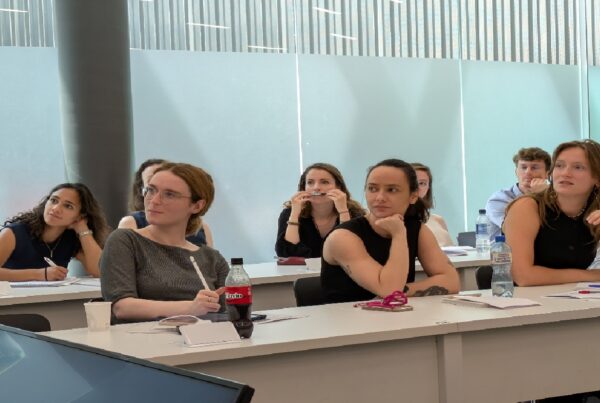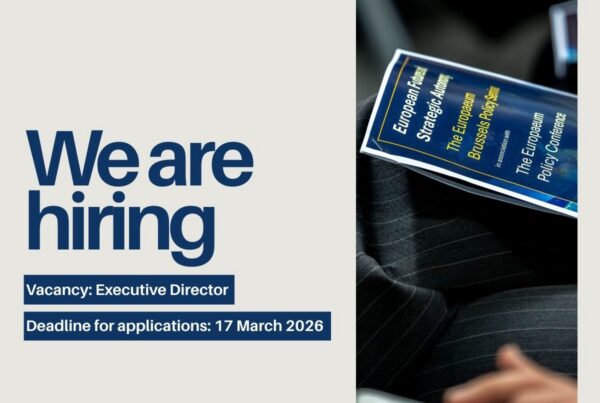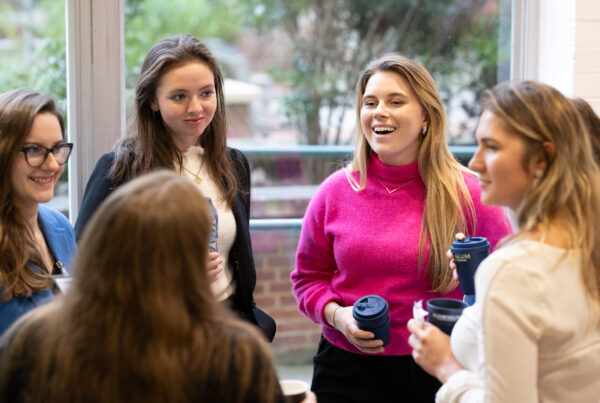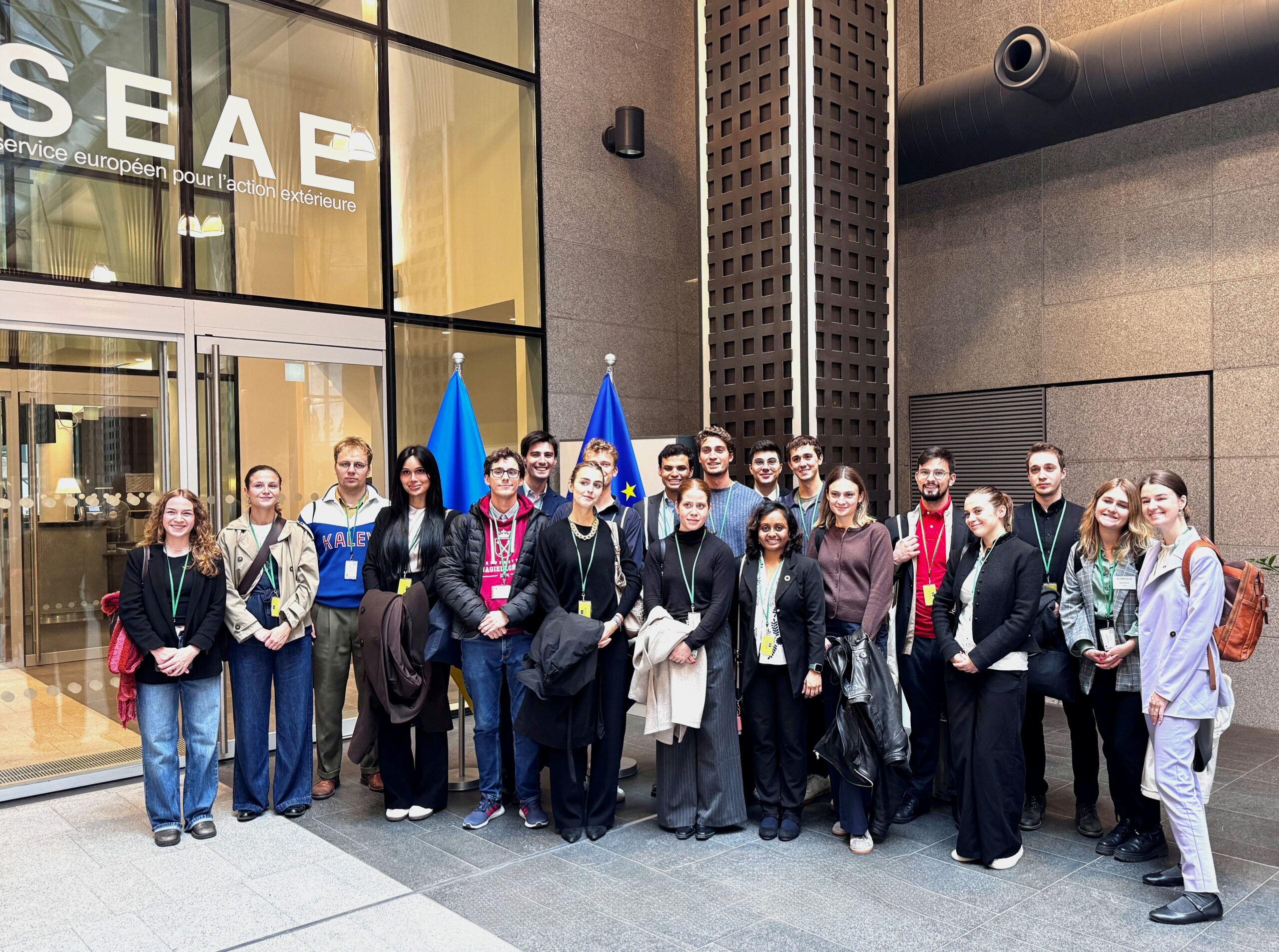
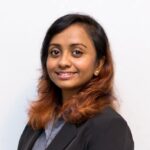
About the Author:
Anudini Wijayarathna is a Doctoral Researcher in the Doctoral Programme in Political, Societal and Regional Changes at University of Helsinki.
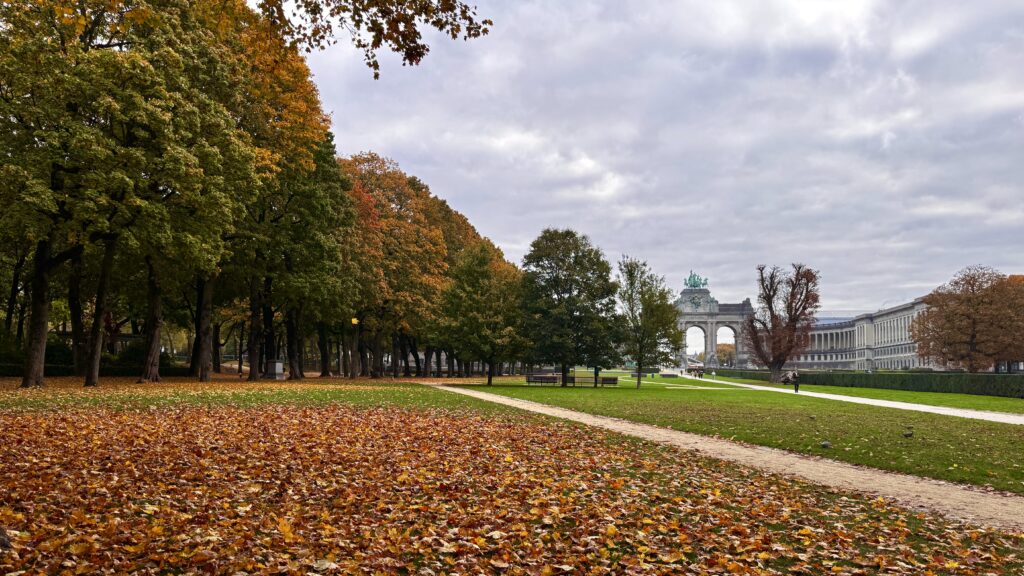
Day 1: Monday, 13 October
Arrival in Brussels – Exploring and preparing
I began my journey from Sweden in the morning, taking almost a two-and-a-half-hour flight to Brussels. Having spent the previous few weeks in Helsinki, Finland, and Uppsala, Sweden in cold windy weather, I really appreciated the autumn weather in Brussels. The day was mostly dedicated to transit, checking into the hotel, and preparing for the European Futures and Strategic Autonomy Brussels Policy Seminar. After settling in at the hotel, I had some quiet time to review the upcoming seminar programme and reflect on topics I wanted to explore during the discussions. In the late afternoon, I managed to take a walk around beautiful Brussels, getting a sense of the city and its atmosphere.
Reflection: Even though this was primarily a travel day, it set the tone for the seminar. I felt a mix of excitement and anticipation, and exploring a bit of the city helped me relax while mentally preparing for three full days of learning, discussions, and networking ahead.
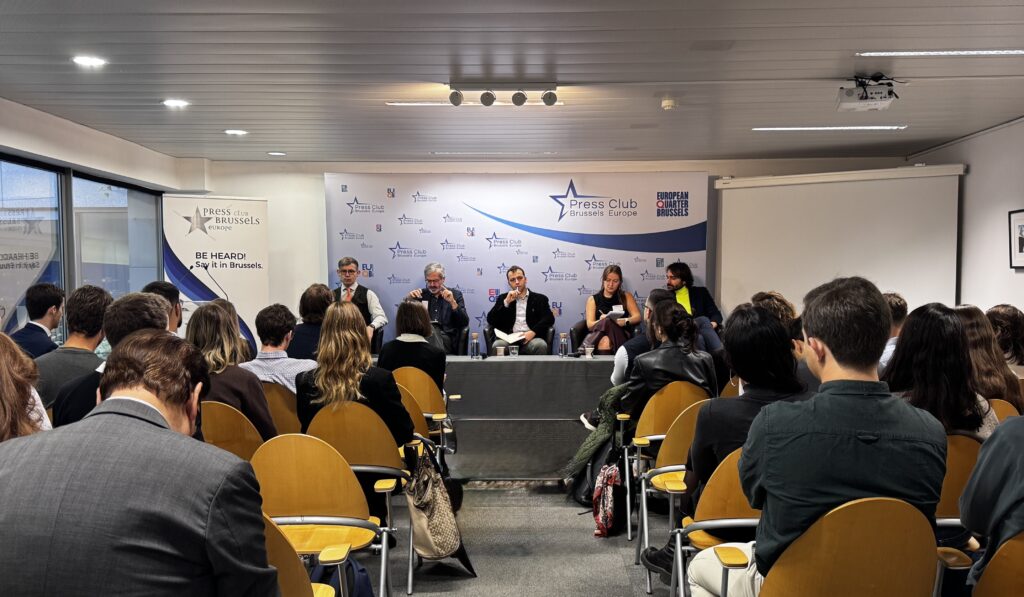
Day 2: Tuesday, 14 October
European politics and media resilience – Understanding challenges and leadership
The seminar officially started with a morning briefing in the hotel lobby, where we met Miles Pattenden from Europaeum. We then moved to the Press Club Brussels for the first panel on Disinformation & Media Resilience. It was very interesting to hear about the Europaeum scholars’ project, EU Media Wallet, which provides young adults with free access to independent news to strengthen informed citizenship and democratic resilience. Experts like Eddy Wax (journalist, Euractiv) and Giuseppe Abbamonte (DG Connect, European Commission) discussed how misinformation spreads, the challenges of media integrity, and how European institutions can respond effectively. I found the conversation particularly insightful for understanding how public trust in governance is shaped in the digital age.
The morning continued with a keynote conversation on European Challenges and European Potential, where Jim Cloos shared perspectives on Europe’s political landscape, identifying both opportunities and persistent hurdles. After an informal lunch at the Press Club, the focus shifted to Depolarising Politics & Society in Europe. Panellists explored societal cohesion and the importance of dialogue across political divides, which encouraged me to think critically about the mechanisms that support inclusive policymaking.
The day ended at the Foundation Universitaire with a keynote roundtable on Promise and Performance in the Berlaymont: Perspectives on von der Leyen 2.0. Listening to the experts reflect on leadership, decision-making process changes, institutional performance, and European governance provided nuanced perspectives on the challenges of policy implementation. Dinner at Restaurant L’equinoxe allowed for informal discussions with fellow participants, sharing reflections from the day.
Reflection: Today offered a deep dive in to how politics, media, public perception and governance intersect in Europe. It became clear that maintaining resilience in Europe is an ongoing challenge, requiring careful leadership, strategic communication, critical thinking and citizen engagement.
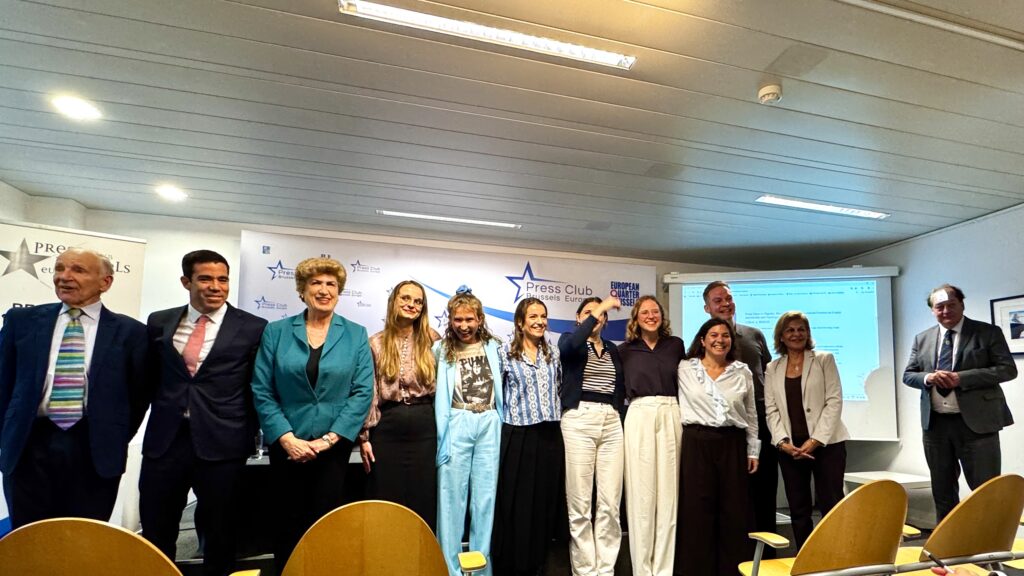
Day 3: Wednesday, 15 October
Urban greening, scholarly insights and European Parliament visit – Research-driven solutions and translating theory into real-world governancend Journalists
The morning session at the Press Club focused on Urban Greening and Renewal in Europe. Europaeum scholars presented their project ‘Green Together: Communal Urban Gardens Across Europe’ that fosters communal urban gardens in Europe to boost environmental, social, and economic benefits while supporting EU policy goals. Heather Brooks (Eurocities) ongoing initiatives for Nature Restoration and the importance of integrating environmental improvements into urban planning. This practical focus on urban policy gave me examples of how European urban greening priorities translate into local action.
Later, the Europaeum Scholars’ Prize Giving Ceremony celebrated the winning project ‘From Data to Dignity: Monitoring Accommodation Centres to Foster Autonomy and Participation’ with its team after Maria João Rodrigues (Re-Imagine Europa) and Shada Islam (College of Europe, Natolin) giving remarks on all the projects. Hearing António Leitão Amaro’s (Minister for the Presidency, Portugal) keynote and seeing the variety of projects presented inspired me to think about how research-driven solutions for contemporary challenges in policy and governance.
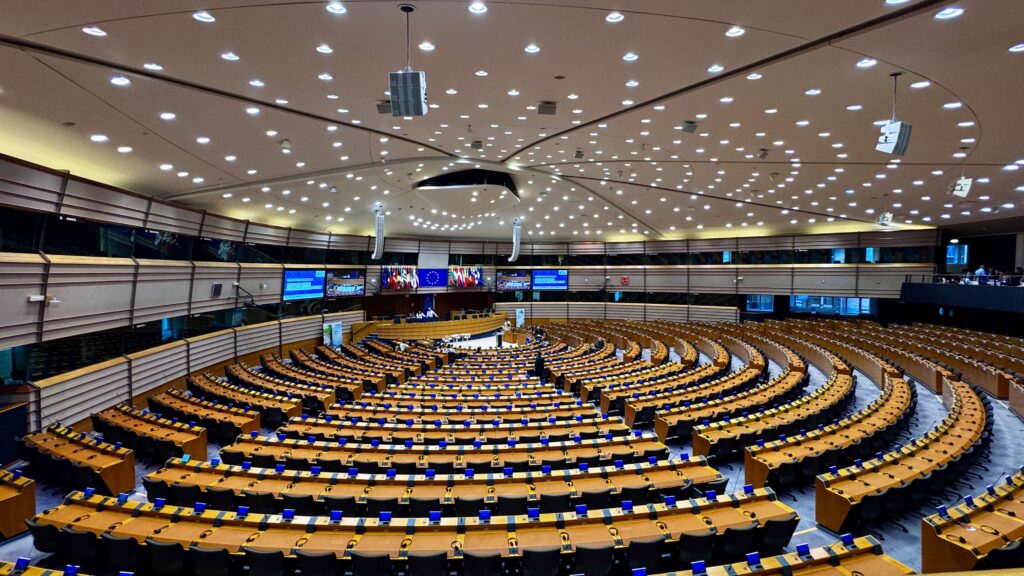
In the afternoon, we visited the European Parliament, touring the Paul-Henri Spaak and Altiero Spinelli buildings with Richard Freedman and engaging with parliamentary staff; Victoria Martin de la Torre (European Parliamentary Research Service), Philipp Schulmeister (DG Communication, European Parliament) and Lasse Boehm (DG Economy, European Parliament). We were introduced to the parliamentary workflow, committee structures, and the process by which EU legislation is debated and adopted, followed by discussions on transparency, public engagement, and the practical challenges of parliamentary decision-making. Seeing the legislative processes up close offered a concrete sense of how European institutions function and how complex decision-making unfolds at this level.
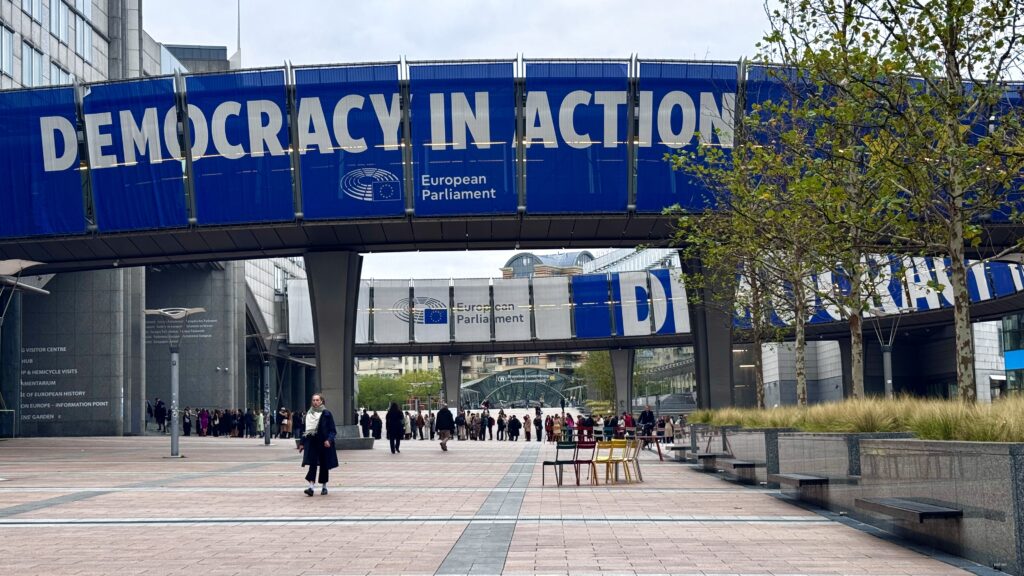
The evening concluded with a keynote roundtable on Strategic Autonomy Now through green transition, EU’s evolving role in global security and defence, economic and trade dependencies and international partnerships with academic experts followed by a conference dinner, which provided further opportunities for discussion and networking.
Reflection: Experiencing the European Parliament firsthand and the discussions with experts supported the link between academic insight and policymaking. It was a day of learning how theoretical ideas are translated into real-world governance.
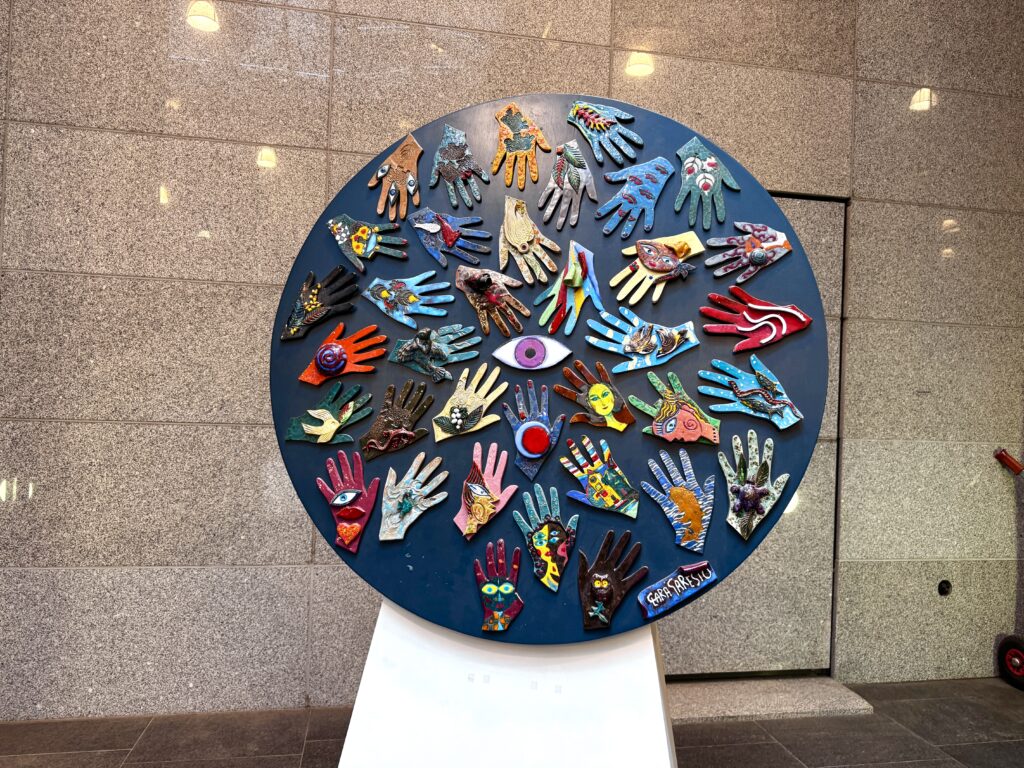
Day 4: Thursday, 16 October
Strategic autonomy and European external affairs – Strategic autonomy through the lens of EU and media
The day began with a guided tour of the Council of the EU, offering insights into its structure and function, and the role it plays in shaping European policy. Later, a lunch discussion with Brussels-based journalists brought forward perspectives on how they view, and the media covers European decision-making, strategic autonomy, and policy challenges.
The afternoon visit to the European External Action Service (EEAS) highlighted the EU’s approach to foreign policy and security. Presentations and discussions emphasised current challenges in coordinating EU foreign policy and maintaining strategic autonomy in a rapidly changing geopolitical landscape.
The day ended with a debrief and early supper at Attica Restaurant, allowing time to reflect on the seminar’s content, discuss key insights with our group and digest the experiences of the seminar.
Reflection: Direct exposure to both policy and media perspectives provided a multidimensional understanding of European governance and strategic autonomy. I left with a deeper appreciation of the complex interactions between institutions, communication, and policy implementation.
Day 5: Friday, 17 October
Return journey and reflection – Learnings, connections, and perspectives
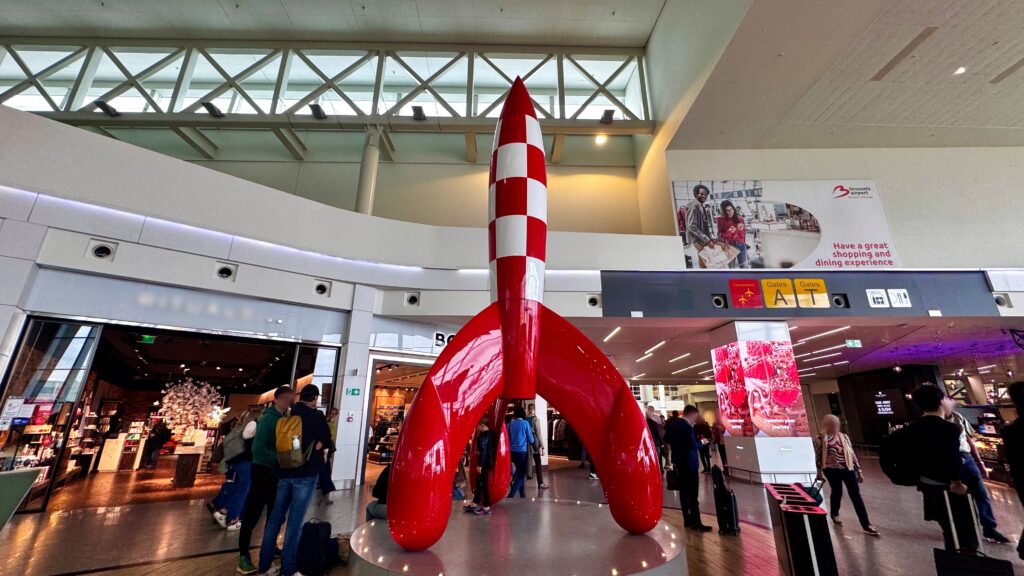
I travelled back to Sweden, reflecting on the seminar and my experiences in Brussels. The event offered an invaluable opportunity to connect with scholars, policymakers, and journalists, providing both inspiration and practical insights for my research and professional interests. I spent part of the journey thinking about how to apply the discussions, visits, and reflections to my own work in understanding governance, strategic autonomy, and European policymaking.
Reflection: This trip was both intellectually stimulating and personally rewarding. The combination of panels, visits, and discussions gave me a comprehensive view of Europe’s governance landscape and the different aspects of strategic autonomy while giving me the chance to meet and connect with many inspiring professionals, expanding my network across disciplines. It also reminded me that while academic insights are valuable, translating them into practice is often complex shaped by diverse societal contexts; yet such dialogues are crucial for identifying which actions need to be pursued, reconsidered, or changed.
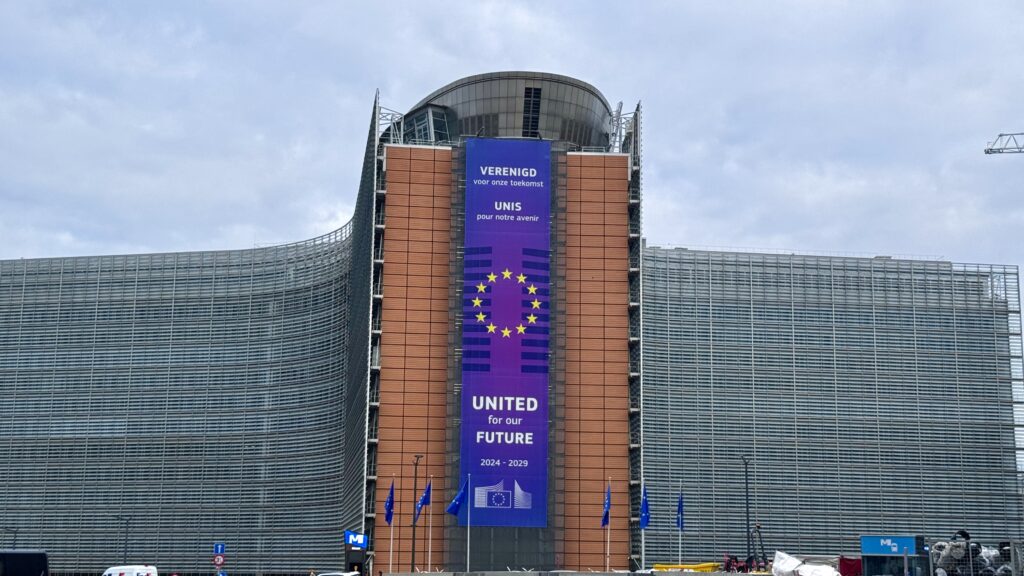
During these days, travelling and sharing the experience with a group of 20 participants from different European universities and countries made it even more memorable. We exchanged ideas from our various academic fields and talked about our personal beliefs, cultures, and perspectives, which made the trip feel truly enriching and enjoyable.
Last but not least, I’m truly grateful to the Europaeum for organising such an inspiring event. A special thanks to Miles Pattenden for all his effort in coordinating everything so smoothly, and to Sasha Panagiotidis for always communicating so efficiently with us throughout. I also really appreciate everyone behind the scenes at the Europaeum who worked hard to make this seminar a reality, as well as all the contributors who made the experience so meaningful.

